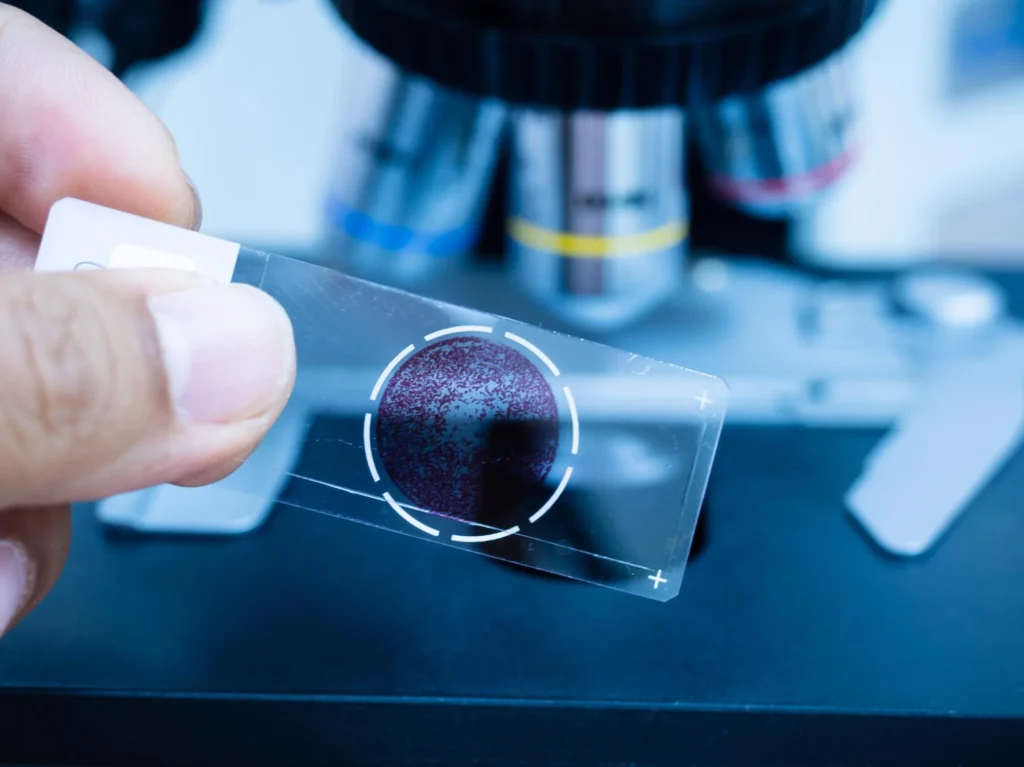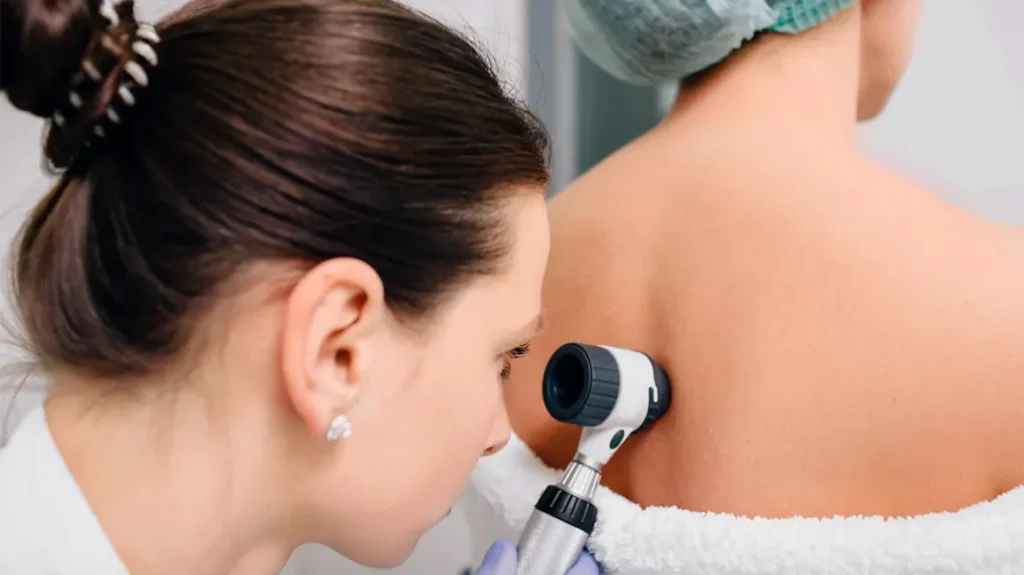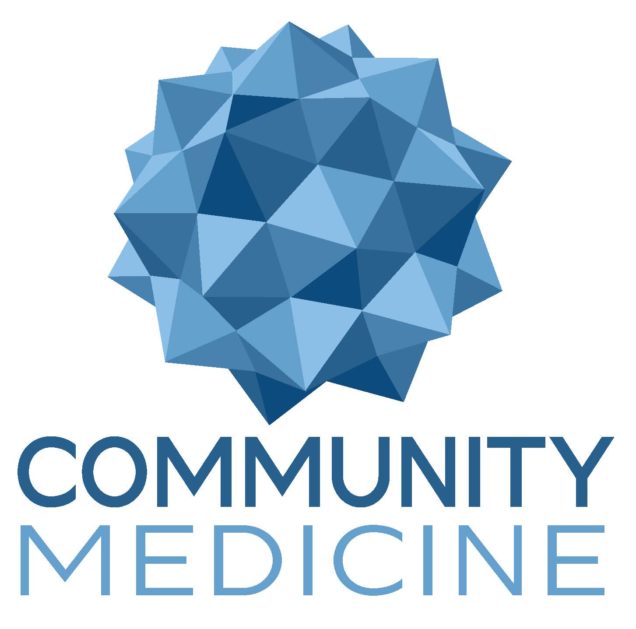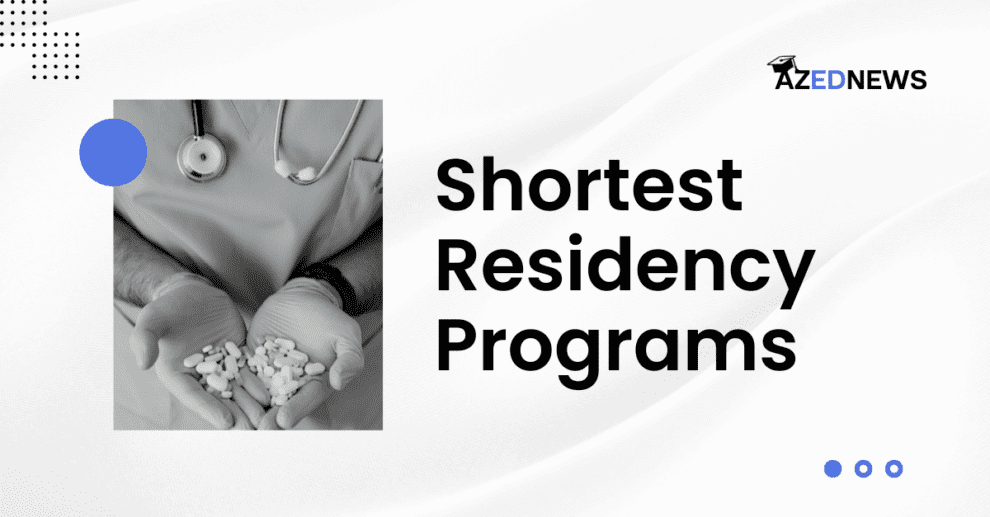Are you looking fort the shortest residency programs? then you are at the right place. Medical residency is one of the most important phases in the life of any physician as it is a crucial step towards their journey of becoming a successful practitioner. But in case you want to complete your residency in a short period, it will be ideal for you to choose the shortest residency programs.
The tenure of residencies included training and intense practical exposure to the field and allowed the doctor to acquire professional skills in a particular field.
Table of Contents
If you are a doctoral student and want to specialize in a particular medical field then you must accomplish a residency program. A shorter residency program can be worth enrolling in, as it will save both your time and effort. A shorter residency program also minimizes the financial investment required.
Key Takeaways
- Residency programs are required to become a doctor after med school.
- Residency programs take 3-7 years to complete.
- Shorter residencies are good for saving time and money.
- Primary care residencies are shorter than surgical residencies.
- Some of the shortest residencies (3 years) are: Internal Medicine, Pediatrics, Family Medicine, Emergency Medicine
What are the shortest residency programs?
For example, you might have heard that dermatology is an expert in skin and hair and the dentist is an expert in teeth. The average residency program might last between three to seven years depending upon the type of program. The shortest programs can last up to three years. The main motive of doctors behind choosing the shorter residency program is to minimize the financial investment and save the time consumed in accomplishing longer residency programs.
The Primary care residency programs are shorter as compared to the surgical residencies, these are longer and require more years to be specialized in. The reason these residency programs are longer than the other ones is the responsibility, autonomy, and independence required to master them.
However, the shorter programs have less demand as compared to the longer ones. But in some instances, they are much better. We have researchers and short-lived some of the best shortest residency programs which have high market demand and value. Applying for this will help you to gain technical skills as well as save a lot of time and investment. Below mentioned are them, let’s have a look:
List of the Top 10 Shortest Residency Programs
Here are the top 10 shortest residency programs to apply for a doctoral student:
| Residency Program | Length | Focus |
| Internal Medicine | 3 years | Diagnose and treat adult illnesses |
| Neurology | 3-5 years | Diagnose and treat brain and nervous system disorders |
| Pathology | 3-4 years | Diagnose diseases at the cellular and molecular levels |
| Dermatology | 4 years | Diagnose and treat skin, hair, and nail conditions |
| Pediatrics | 3 years | Care for infants, children, and adolescents |
| Medical Genetics and Genomics | 3 years | Diagnose and treat genetic diseases |
| Community Medicine | 3 years | Public health, epidemiology, and healthcare systems management |
| Family Medicine | 3 years | Provide comprehensive care to patients of all ages |
| Emergency Medicine | 3-4 years | Provide emergency medical care |
| Physical Medicine and Rehabilitation | 3 years | Treat disabilities related to neuromuscular and cardiopulmonary systems |
1. Internal Medicine ( 3 years )

The program mainly focuses on the major organs in the human body. Here acute and complex illness is being studied in a practical exposure so that the doctoral students get specialized in the field. After completing the residency program for 3 years the students will become specialists in diagnosing and treating adult illnesses. Both the inpatient and outpatient care incites in the three years of the internal medicine program.
All the students get to work under the supervision of professionals and experts in the field. The experts will help them understand the basic medicinal practices to be followed to recover the chronic and acute illnesses. Other than the medicinal works basic education related to cardiology, gastroenterology, endocrinology, and nephrology is being taught
Moreover, the students who enrolled in the program get a chance to be involved in the research works with the field experts. Once the residency program is accomplished the student may work with a fellowship in the field of cardiology, gastroenterology, or infectious disease.
2. Neurology ( 3 to 5 years )

Accomplishing the neurology residency program can take up to 3 to 5 years which includes an essential medical training pathway. The main motive of the program is to help the doctoral students who enroll in neurology to become specialists in treating and diagnosing disorders related to the brain and nervous system. The clinic and surgical experience is given to the students in various areas including outpatient clinics, inpatient units, and emergency departments.
Various training sessions are also arranged for the students which help them to understand the didactic mechanism of the brain and spinal cord. After completing the residency program the students get the knowledge of various essential works like neurology-specific skills, patient history-taking, diagnostic testing, treatment planning, physical examination, and many more.
One of the most important skills required for a neurologist is the communication, teamwork, and professionalism skills. The same skills are focused through the residency program.
3. Pathology ( 3 to 4 years )

The main objective of pathologists is to treat, manage, and diagnose various kinds of diseases. One of the shortest residency programs, pathology helps the students to specialize in determining the real cause of the disease at the cellular and molecular levels. Further, the pathology is categorized into different subtypes including anatomical pathology, clinical pathology, and forensic pathology.
The study and practical exposure require a lot of patience and time. That is why the residency program takes over 3 to 4 years to get specialized in pathology. For the student who is interested in the laboratory, the special laboratory management skill and experience is provided under the guidance of experts and professionals.
4. Dermatology ( 4 years )

Dermatology is the study of skin and hair. The doctoral students who want to specialize in treating and diagnosing diseases related to soil, hair, and nails will get practical exposure while pursuing the residency program in dermatology. Providing practical training to the students is one of the major motives of the program. Various dermatological procedures are being taught to the students including biopsies, excisions, and laser treatments.
The students who have completed the residency program can also work as fellowships under any dermatologist or establish their clinic to serve the people. This Shortest Residency Programs aids the students with different strategies and procedures including clinical rotations and didactic education. The audience and supervision of experts to gain hands-on experience in patient care make them specialists in dermatology.
5. Pediatrics ( 3 years )

The expert caring for infants, children, and adolescents is known as pediatrics. The main motive of the residency program is to help the students learn some practical procedures and practices for handling infants, children, and adolescents. There are both clinical and didactic components included in the residency program for the tenure of three years, which makes it one of the shortest residency programs.
There is a need for special skills and expertise while handling infants as a little mistake can lead to any critical health and mental issues. The practical exposure in the field helps the students to understand the basic requirements of handling infants, children, and adolescents. The residency program lasts for three years and after completing the program the doctoral students can perform fellowship.
6. Medical Genetics and Genomics ( 3 years )

Physicians who have an interest in the field of genetics and genomics can apply for the medical genetics and genomics residency program which lasts for three years. The program is designed to help students identify, treat, and diagnose genetic diseases. During the training tenure of the program, the student goes through the practical exposure of identifying the genetic diseases by understanding their molecular, biochemical, and cellular basis.
The full procedure that can be used to treat and diagnose the problem is being taught to the students. The three years of the program keep the students in touch with the experts and professionals in the field that help them build experience. Various fellowship opportunities are available for the students to get enrolled after completing the program.
7. Community Medicine ( 3 years )

In the field of public health, epidemiology, and healthcare systems management, the residency program of community medicine is highly recommended. The doctoral students who are looking for the shortest residency program can enroll in community medicine and get fellowship opportunities after completion of the program. The program consists of training and practical work on the whole community of people. Even the government consults with the community medical experts before implementing any public health program and policies.
The other programs are designed to identify the medical condition of the individual whereas the community medicine residency program aims to determine the medical condition of a population and aid them with the required medications and healthcare system. The students will also get the chance to work with different departments, community organizations, and other public health agencies. This will help them to gain a realistic experience.
8. Family Medicine ( 3 years )

Family Medicine is one of the shortest residency programs, the students are trained to treat, diagnose, and provide comprehensive care to patients of all age groups and genders. These types of doctors are specially centered on family health services as they are capable of treating all patients whether they are infants, children, adults, or seniors. The program includes all kinds of clinical and didactic components and lasts for around 3 years.
Several common medical aspects are covered under the residency program including inpatient and outpatient care, obstetrics and gynecology, pediatrics, emergency medicine, subspecialty rotations, and many more. These students are trained to identify the common medical conditions as well as treat them with the least collateral damage.
9. Emergency Medicine ( 3 to 4 years )

The 3 to 4 years of residency program in emergency medicine trains the students to identify
various emergency diseases and medicinal conditions. Also, the training regarding providing the required medicine during emergency medical conditions is taught during the program. The main motive of the program is to provide knowledge, skills, and clinical judgment to the students. All these skills help the students offer emergency medical care to patients of all genders and all ages.
Usually, these types of doctors can get a fellowship at different emergency medical services. Both the didactic and clinical components are included in the residency program. The students specialized in different fields throughout the course including trauma care, critical care, and toxicology.
10. Physical Medicine and Rehabilitation ( 3 years )

In this type of Shortest Residency Programs, the students get to specialize in treating disabilities related to neuromuscular and cardiopulmonary systems. All the physical health issues including bone fractures, ligament tearing, utilization of assistive devices to support the physical structure of the body, therapeutic exercise, and many other practices that can be effective in curing physical disabilities. The students get practical experience with various techniques including orthotics and prosthetics.
FAQs
1. Which Is the Easiest Residency?
Well, there is no resident which is easy and can be completed without effort. However, some of the residencies are easier as compared to others. They can be completed by any average individual as well. Some of the easiest residences are family medicine, internal medicine, emergency medicine, and pathology.
2. Which Residency Is the Least Stressful?
It is very difficult to determine the least stressful residency as there are various factors behind determining whether the residency is stressful or not. These factors include the program, the individual, and the workload. However, some of the medical residencies are less stressful as compared to others, including dermatology and pathology. These residencies have lower patient volumes and less demanding schedules.
3. What Type of Doctor Takes the Shortest Time to Become?
Usually becoming a doctor takes several years as the students need to achieve a bachelor’s and master’s degree in a particular field of doctoral course. However, some types of doctor occupations take less time as compared to others and one can become a doctor very soon. These types of doctors include family doctors, osteopathic physicians, and emergency medicine physicians. The reason behind them having the shortest time is their short residencies.
4. Which Residency Is the Shortest?
Most types of residencies take similar time to be completed but there exist some shortest residences which take lesser time and effort as well. If you are looking for the shortest residency program then you got some in this article. Some of the Shortest Residency Programs are family medicine, internal medicine, emergency medicine, and pediatrics.
5. Can you finish residency in 2 years?
Residency training is quite long. It usually takes around four and a half years. Some residency programs are short, lasting only three years. Others are very long, about seven years. After residency, some doctors do extra training called a fellowship. These fellowships can be one year, two years, or three years long.
Conclusion
There is a wide variety of programs available in the medical field which have different intensities, lengths, and requirements. Here in this article, we have mentioned the shortest residency programs that can be accomplished in about 3 years. However, the Shortest Residency Programs does not mean they are easy and less stressed. The candidate needs to go through a series of commitment and hard work from resident physicians to achieve something.
However, it is not best to always choose the shortest residency programs just because of their short tenure. You need to look at your personal and professional goals before choosing one. Also, never choose the residency program because of its short tenure, make sure to also look upon the future opportunities and quality of the program.












Add Comment